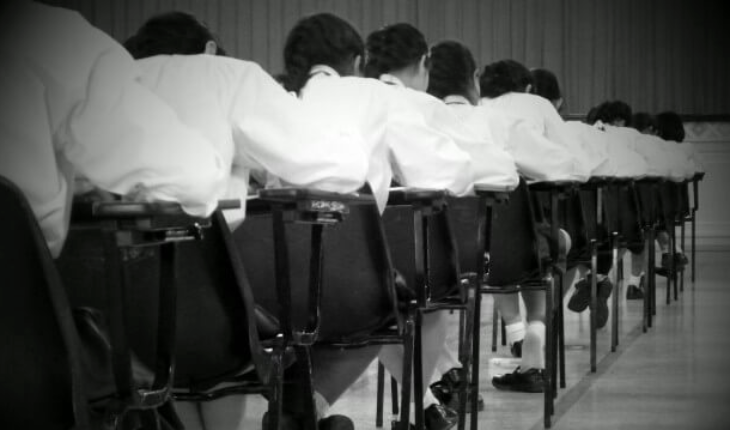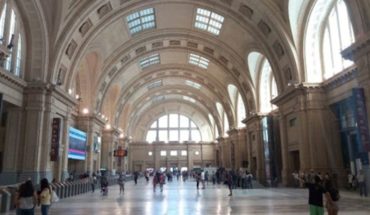“To articulate historically the past does not mean knowing it ‘ as it really has been.” It means owning a memory such as this flashes in an instant of danger (…) Not even the dead will be safe from the enemy if it expires. And this enemy has not ceased to conquer “(Walter Benjamin)
The approval of the National Council of Education (CNED) and the interest of the current government of Chile led by Sebastián Piñera, to eliminate the obligatory of the subjects of arts, physical education and history in 3 º and 4 º year of middle school, opened a public debate and It has provoked widespread rejection of this initiative, from a wide variety of actors in the educational, social and political world. Fundamentally because, among other scopes, the measure reinforces the mechanisms of formation of citizens-subjects of the neoliberal contemporary model.
Although this proposal for curricular modification is not alien, but part of the “structural adjustment” that was launched from the military dictatorship in Chile and, among other fields, has involved education. The concrete thing is that this initiative is also a clear symptom of the reactionary times we currently live in. Times where, as some analysts have warned, not only seems to be in crisis the model of liberal capitalist democracy, but also where a global trend that mixes conservatism, ultranationalism, misogyny, racism, xenophobia and Authoritarianism, serious threat, serious and seeks by different means to reverse those achievements and rights that in recent decades reached movements of workers, students, environmentalists, feminists, migrants, movements Afro-descendants and indigenous peoples, among others.
In these dangerous times, where the curricular modification seeks to suppress memory and dialogue with the past to avoid a critical understanding of our times and explore alternatives, it is not enough to defend the obligatory “history” as Discipline or subject. Although in the current situation this defense is presented as a first step, necessary by the way, it is imperative a review, analysis and transformation of the visions historiographic that support a curriculum sexist, nationalist, colonialist and Hegemonic racist reproduced in universities and educational establishments. Some of these skewed approaches to regional, national, and global histories are now endorsed by the current neoliberal states, where future teachers of history and geography are formed, as well as young people and children.
Although it is evident that university professors, of secondary or basic education, we do not always act as mere players of this curriculum, or inside the classrooms we use and create interstices to democratize the teaching of history and Contextualizing it, the truth is that in these deeply dangerous times it also makes sense to interrogate: to what extent the current curriculum and the educational system as a whole has contributed or is contributing to form Allied and allied subjects to the Current nationalist, conservative, misogynistic, racist, xenophobic or authoritarian tendencies? And at the same time, what are we doing in our teaching-learning spaces to counteract these tendencies?
In the field of history, the challenge posed by the transformation of the current curriculum overflows the mere incorporation of social or cultural diversities as historical subjects, or their views on the past, grouped or securing them the great An account of a “national history” still anchored in the Creole prism and the “Chilean”. Nor is it restricted to a simple superficial measure of revision of school texts, as proposed in the case of indigenous peoples by the current government of Sebastián Piñera, focusing on the shaping of a commission of “experts”, for the best of Cases adjust the content of the school textbooks or the curriculum itself to a neo-liberal multicultural narrative. This narrative has been characterized by exalting diversity and cultural difference, while leaving intact and reinforces the structural conditions of power, racism and subordination that indigenous peoples live today.
Tukulpan zugu It is, among other Mapuche expressions, to exercise our capacity to dialogue with history, to bring to our present the living past, to recreate, to reconstruct events and knowledge, to explain the present, to obtain learning and to project the future. Tukulpan zugu: An urgent challenge in our time, which will allow us to travel from the demand of obligatory history to the transformation of the curriculum and to a deep reflection of the educational system. As part of this challenge, complex and non-adversary, the debate should be opened to take charge of genocide, colonization, plundering, implicit and naturalized racism in the formation of the Chilean State and its educational institutions in our Territories. As part of this challenge, it is urgent that the new generations should recognize that despite genocide and colonization, indigenous peoples and the Mapuche people are living peoples; Not petrified identities that have taxed the story of the crossbreeding that founded Chilean nationalism. It is the challenge to self-recognize that we have a language like Mapuzügun, not a dialect; To assume that we do not belong to the social place and of subordination that we have been assigned, such as servants, pawns, excellent gardeners (in the words of Villalobos), domestic workers, terrorists or appendices to a Chilean history of supplanting It plays in our own territories. It is the challenge of getting to know our diversities and contradictions, the importance of defending life in our history and the indispensable struggle for freedom and decolonization that we feel proud of.
The new generations settled in our territories – and those who come to be integrated – have the right to speak frankly with this living past and with our present. Not only to rediscover, coexist and co-exist, but also to confront creatively these times of danger and interweaving creatively alternatives and New Horizons.
The content poured in this opinion column is the sole responsibility of its author, and does not necessarily reflect the editorial line or position of the counter.





